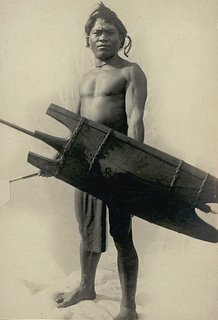US cuts military aid to AFP amid rights charges
It’s a big slap against tyrant Gloria Arroyo and her abusive military leadership. US Secretary of State Condoleezza Rice is responsible for the cut back. It means less 'kurakot' for the military top brass. The US condemned the extra-judicial killings and the poor treatment of political opponents and journalists by a few in the Philippine security forces.
US cuts military aid to AFP amid rights charges
By RODNEY J. JALECO
ABS-CBN North America News Bureau
WASHINGTON D.C. The United States has cut by nearly two-thirds the assistance intended for the Philippine military and police forces next year following allegations they were involved in extra-judicial killings.
A State Department report showed the extent of reduction -- Foreign Military Financing (FMF) was reduced from nearly $30 million to only $11 million by fiscal 2008 which starts this September. It also slashed the International Military Exchange Training (IMET) program in the Philippines from $2.9 million to $1.5 million over the same period.
These funds directly benefit the 160,000-man Armed Forces of the Philippines (AFP). The FMF is used to pay for the procurement of military equipment from the U.S., including Excess Defense Articles or surplus from the U.S. military stockpile -- everything from patrol boats to spare parts and ammunition. IMET, on the other hand, pays for the cost of sending and training AFP officers in the U.S.
The U.S. will also reduce its International Narcotics Control and Law Enforcement (INCLE) program to the Philippine National Police, from almost $2 million to just $1.1 million.
The aid cut is an offshoot of shifting American priorities and recent policy changes that centralized decision making on how to divide the $26 billion allocated to foreign assistance next year.
US State Secretary Condoleeza Rice overhauled the way foreign assistance was distributed to more than 120 countries around the world.
The bulk of the foreign aid budget of $23 billion will go to just a "handful" of countries, leaving about a hundred countries to vie for the remaining $3 billion.
Rice has set five key criteria to prioritize US allocation of foreign aid. Recipient countries are evaluated on the basis of their contributions to building peace and security; governing justly and democratically; and reducing widespread poverty, among others.
The Philippine situation is aggravated in part by persistent charges of human rights abuses allegedly committed by members of the police and military. A panel led by church leaders and human rights activists told a Senate panel last March that over 800 people, including 25 churchmen and scores of journalists have fallen victim to extra-judicial killings in the six years President Arroyo has been in power.
They charged many of these were perpetrated by members of the security forces. Most of these murders have remained unsolved, and only a few have actually been prosecuted.
Four months after that damning report in the U.S. Senate the Arroyo administration is faced with another incident – the abduction of farm technologist Jonas Burgos, son of the late media icon Jose "Joe" Burgos Jr. Witnesses identified the vehicle used in the abduction and subsequent investigation traced it back to the impounding lot of an army battalion headquarters in Bulacan.
The Washington Post reported that Secretary Rice had personally approved the country-by-country budget figures.
In a rare move, the US Senate appropriations committee had inserted specific language in the foreign aid bill that forbids U.S. military assistance to be used against civilians. It directed Secretary Rice to monitor the use of this aid to ensure it is not "misused by units of the security forces against civilians who are members of political opposition parties and human rights groups".
The Philippines got considerably less than most neighbors in the East Asia and Pacific region. Indonesia, for instance will receive $32 million for economic and investment support, compared to $22.9 million for the Philippines; and $60 million vs $26 million for conflict mitigation and programs that promote democratic and economic institutions.
The Philippines on the whole, will get a smaller piece of the U.S. foreign aid pie next year. The allocation for the Child Survival and Health Fund was reduced from $24.6 million this year to $17.5 million in 2008 and Development Assistance from $24.2 million to $22.9 million during the same period. However, the Philippines will enjoy a slightly higher benefit from the Economic Support Fund, or from $24.7 million today to $26 million next year.
But a Philippine Embassy official downplayed the possible link between the country’s deteriorating human rights image to reduced U.S. aid.
He explained that lower military aid can be attributed to the fact that the U.S. has already delivered 90% of the military equipment promised by President Bush when he classified the Philippines as a "major non-NATO ally". These included patrol boats, helicopters, rifles and so-called "force multipliers" like night-vision equipment and satellite radios.
The U.S., he insists, provides military assistance in other forms, more often indirectly, by sharing their technology and intelligence gathering capabilities in fighting Islamic extremists in Mindanao.
Even in the face of this argument, the huge decline in US military aid to the Philippines is glaring. Only five years ago, the Philippines ranked 4th among countries receiving the FMF and 2nd in IMET beneficiaries. In 2003 alone, the AFP received $115 million in military assistance from the U.S.
Labels: Extra-Judicial Killings, Foreign Military Financing, Philippines, U.S. Aid





 Deviant Art
Deviant Art
0 Comments:
Post a Comment
<< Home